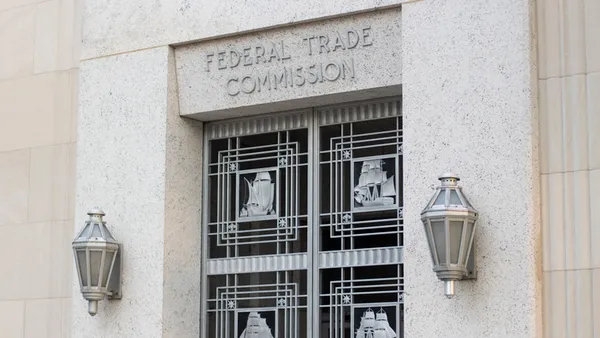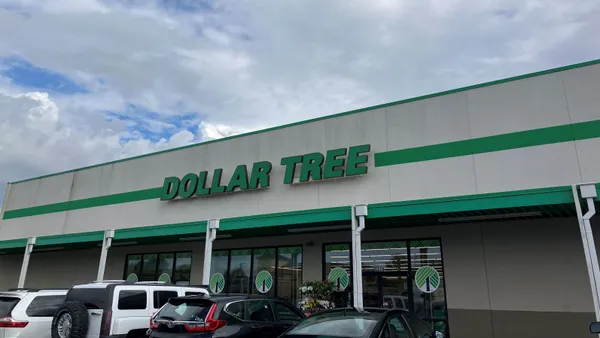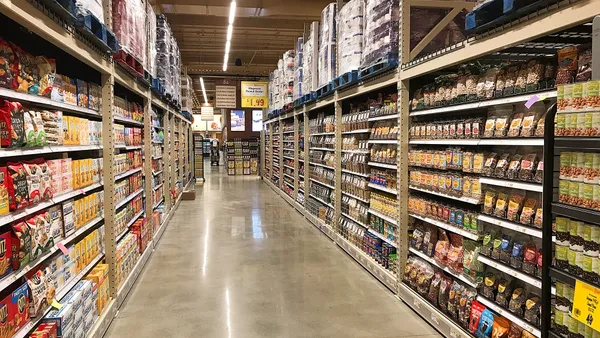Dive Brief:
- Japanese supercenter retailer Don Quijote plans to expand in the U.S., according to the Nikkei Asia Review. The retailer's parent company, Pan Pacific International Holdings, currently operates Marukai supermarkets in the U.S. and three Don Quijote stores in Hawaii.
- Don Quijote stores are known in Japan for their wide-ranging assortment and cluttered "jungle displays." Pan Pacific CEO Koji Ohara told the Review the company will develop a new format for the U.S. that will have "Don Quijote-ism at the core." Ohara will resign from his position as CEO next month to take control of U.S. operations.
- Through acquisitions, Pan Pacific now operates 38 stores in the U.S. but hopes to increase its store count to 100 long-term.
Dive Insight:
A typical Don Quijote store, known as "Donki" in Japan, is a 24-hour megastore crammed with merchandise in every nook and cranny and featuring brightly colored discount signs. It sells everything from groceries to cleaning supplies to Prada bags.
Although few details are available about its new U.S. format, Don Quijote will probably stick to its three pillars of convenience, discount and amusement, said Sean Butler, managing director at supply chain consulting firm LIDD, in an email to Grocery Dive.
Butler explained that these three pillars could help the retailer find success in the U.S. Convenience and value are driving U.S. consumer behavior more than any other force today, and Don Quijote's success will hinge on its execution of "amusement" for the U.S. market, he said. Butler compares Don Quijote's format and assortment to that of American discount chain Ollie's Bargain Outlet.
Shoppers' desire for value can be seen as discount stores like Dollar General, Aldi, Lidl and Save-a-Lot continue to thrive. Dollar General has reported positive earnings over the past several quarters and dollar stores overall have more brick-and-mortar store openings than any other format. Grocery Outlet's highly successful IPO also highlights the future of the discount store platform.
In the U.S., Don Quijote has an opportunity to reach an audience hungry for low-price groceries and consumer goods. "The company is betting that it can execute experiential retail better than the status quo – and pick up a nice chunk of the world's largest consumer economy in the process," said Butler.
Butler explained that Japan's retail environment is very sophisticated when it comes to e-commerce, but the large, cluttered superstore retailer and its parent company have found success without turning to online shopping. Pan Pacific is on track to become Japan's fifth largest retailer, and sales reached about 1.3 trillion yen at the end of its fiscal year in July.
Pan Pacific currently has 11 supermarkets in California and Hawaii under the Marukai banner, which it acquired in 2013. In 2017, Don Quijote Holdings bought Hawaii-based Times Supermarket, which operates 24 stores in the state.
In 2014, the company told Reuters it planned to open a Japanese takeout chain in the U.S. Although that never came to fruition, Butler said the retailer could have a strong foodservice offering in its new U.S. stores, but it's too soon to say for certain.










